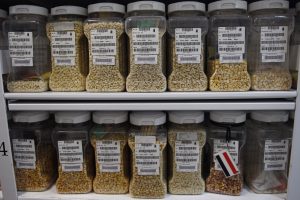Mexico City, Oct 15 (EFE).- To feed the 10 billion people who are expected to inhabit the Earth in 2050, global food production must rise 50 percent over the next 32 years, a monumental challenge that modified seeds could help humanity take on successfully, scientists told EFE.

“Humanity is facing several challenges due to population growth and climate change, as well as sustainability issues, such as soil erosion and excessive water use in agriculture,” the director of Mexico’s non-profit International Maize and Wheat Improvement Center (CIMMYT), Kevin Pixley, told EFE.
Modified seeds seem ideal for taking on the challenge, since they are resistant to pests and drought, and provide the nutrients humans need.
The CIMMYT, an institution dedicated to food security, is trying to tackle these issues through “technologies applied to new varieties.”
Pixley said the CIMMYT was producing new varieties of seeds enhanced with nutrients and resistant to pests, high temperatures and excessive rainfall.
The center has even developed corn plants resistant to hail, Pixley said.
The CIMMYT director said that not wasting food and consuming less meat could contribute enormously to feeding the 2 billion people who the UN Food and Agriculture Organization (FAO) estimates will be added to the world’s population.
The FAO says that food production will have to increase by 50 percent by in 2050.
